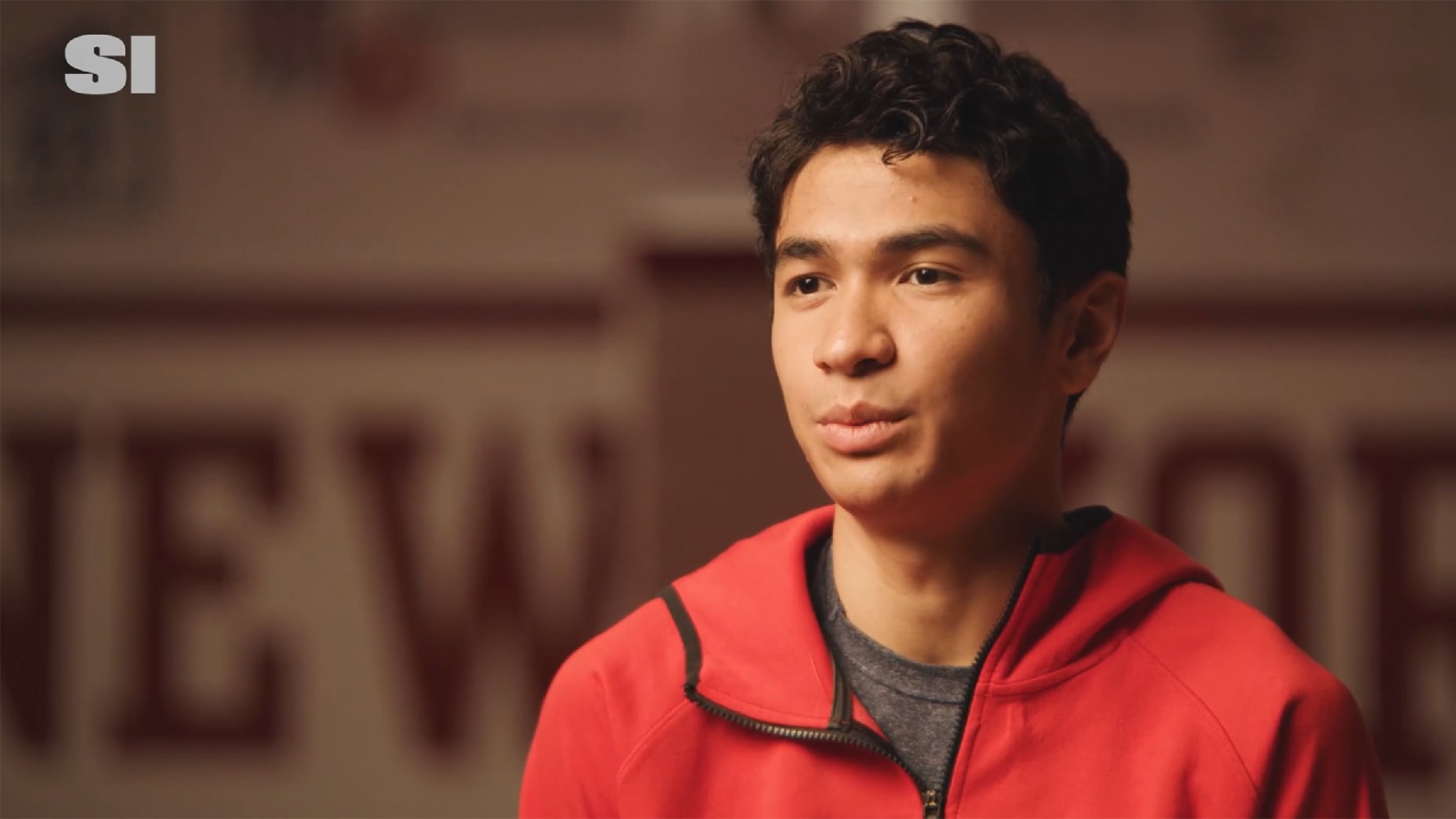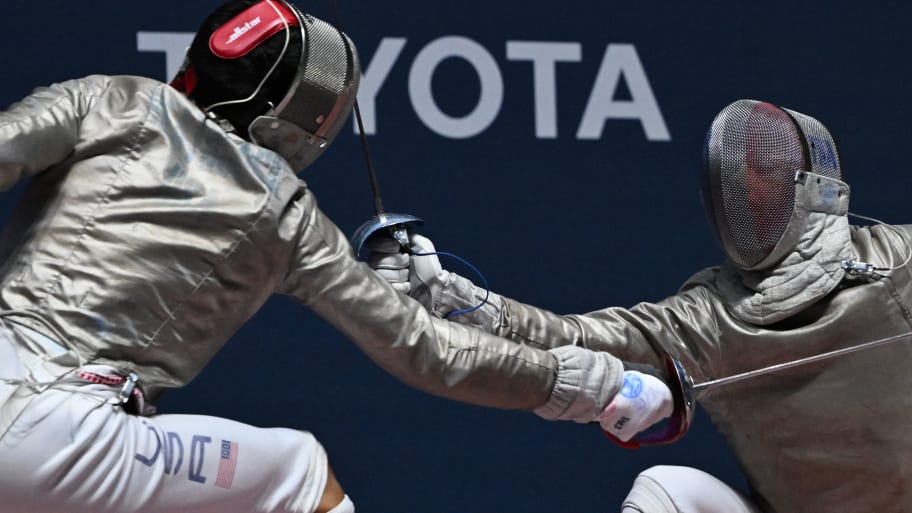
It’s the perfect story: American who moved to France to pursue fencing makes the Olympic team and gets to compete in essentially a home game this summer in Paris.
Well, to everyone except Colin Heathcock himself. “I haven’t really thought anything about the Olympics location,” he admits. “Because I never really thought I would even make it, to be honest.”
This wasn’t the plan for Heathcock, 18, who finds himself not only an Olympian but among the Americans’ best chances for a medal. But really, none of it has been. He started fencing at eight because his father, Virgil, noticed a poster for a class near their home in Palo Alto, Calif. Colin and his brother, Antonio, three years older, had already cycled through most other sports without finding a passion. The boys had moved around a bit, from Beijing—where Colin was born and where Virgil worked as a business consultant and the boys’ mother, Julie Yang, worked as an architect and engineer—to Palo Alto. Their parents worried that they were too closed off, that they lacked confidence. “We were kind of living in a shell,” Colin says.
They started with foil; within six months, they were complaining it was all too slow. So their father suggested they try sabre, hoping that all the pouncing and slashing would capture their attention. He was right. Colin knew on that first day that he was home.
“I feel like I can express myself a lot better with sabre,” he says now.

They went back and forth from the U.S. to China, fencing in both countries. The brothers realized within two years that they had a chance to be elite athletes—Antonio is ranked No. 105 in the world—and they began to take the sport more seriously. By 13 Colin was competing internationally, representing Germany, where their father has dual citizenship. But the Heathcocks were still living in California, and every major event took place in Europe.
“It was, like, 12-, 13-hour flights every time for one tournament,” Heathcock says.
So when his parents heard that the renowned sabre coach Christian Bauer was opening his own academy in Orléans, France, they decided to move there. (Another point against the idea that he planned for this home Olympics: His French is “pretty bad,” he says, because everyone at his home club speaks English.) This was not exactly the life his parents had envisioned when they chose an activity to keep their boys busy. But, Heathcock says, “They were like, ‘Why not keep going if this is working?’”
And it really, really was. Six weeks after his 14th birthday, Heathcock finished 10th at a junior world cup event for fencers up to 20 years old. COVID-19 wiped out his age-15 season; instead he watched the Tokyo Olympics and dreamed of fencing at the Los Angeles Games in 2028. At 16, he dominated the junior circuit so thoroughly—winning four of the five events he entered, including the world championships, and finishing third in the fifth—that he started competing on the senior level. He finished an outrageous 25th at a grand prix event in Padua, Italy, where the youngest person who beat him was 21.

The U.S. had been recruiting the Heathcocks, and in 2022, they decided to switch their national team. The choice initially might have seemed like a risk: At the time, Germany was ranked ahead of the U.S. But Heathcock says he was sure.
“We felt more at home fencing for the U.S. than in Germany,” he says, then smiles. “All speaking English, that was definitely one [reason]. And all the members of the team were really welcoming.”
The change did not affect his results: He won his second consecutive junior world title in ’23—the first time he was really in the right age bracket for that event—and tied for 11th at a senior world cup event in Warsaw.
Only then did he start thinking that maybe 2028 was too far away.
At that 2023 world cup event in Warsaw, he fenced for the first time as part of the U.S. men’s senior saber team, which took bronze. They won the Pan American Championships and finished third at the world championships, the U.S.’s first men’s saber medal in the 93-year history of the event.
“I was getting good results,” he says. “I’m like, O.K., why not? I can give it a shot. I’m already on the team. I just have to stay on it to go to the Olympics.”
Heathcock made it hard to take him off it. The U.S. men’s sabre team medaled in each of its five world cup events in 2024, including three golds, and Heathcock took two individual first places as well. He was named to the Olympic team in March.
Amid all this success, it’s easy to forget that Heathcock is still a kid. His teammates—Eli Dershwitz, 28, Filip Dolegiewicz, 23, and Mitchell Saron, 23—lament that they don’t understand the slang he uses. Heathcock is indignant: “Normally when they talk, I don’t understand what they’re saying,” he says. He worries that he plays too many video games. He says he can’t get an Olympics rings tattoo because his parents would be mad at him.
But he’s taking it all in stride. He didn’t plan to be here. But now that he is, he plans to win.
This article was originally published on www.si.com as 18-Year-Old Fencer Colin Heathcock Is Ready to Bring Home Gold for Team USA.







